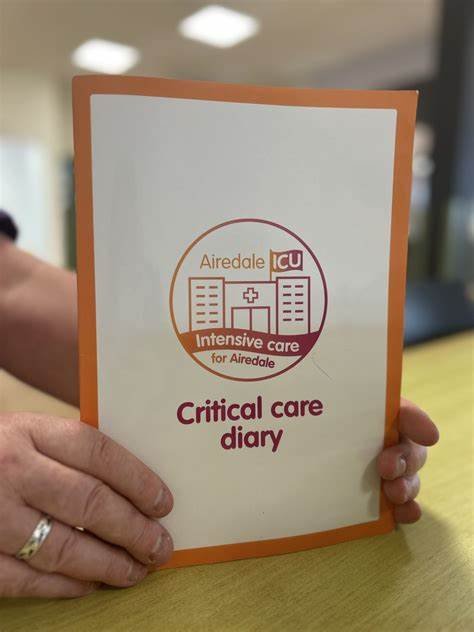Helping intensive care patients cope with isolation is a crucial part of their recovery. Being in an intensive care unit (ICU) can be an overwhelming experience. Patients often feel alone, scared, and disconnected from their loved ones. This sense of isolation can negatively affect their emotional and mental well-being. In this article, we’ll share effective strategies and approaches to help patients feel less isolated and more supported during their time in the ICU.
Understanding the Impact of Isolation
Isolation can have significant effects on patients in the ICU. Many of these individuals face serious health issues and endure stressful treatments. Being cut off from family and friends only adds to their anxiety. This feeling of loneliness can lead to depression, confusion, and even hinder their physical recovery. Therefore, it is essential to focus on helping intensive care patients cope with isolation through various means.

1. Encouraging Family Involvement
One of the most effective ways of helping intensive care patients cope with isolation is encouraging family involvement. When family members can visit and communicate with the patient, it fosters a sense of connection and support. Hospitals can implement flexible visiting hours to allow families to spend time with their loved ones, which helps patients feel more grounded and less alone.
2. Utilizing Technology for Connection
In today’s digital age, technology can play a significant role in helping patients connect with their families and friends. Hospitals can provide tablets or phones to allow patients to video chat or send messages to loved ones. This virtual interaction can help patients feel more connected and alleviate feelings of loneliness. It’s essential for healthcare providers to facilitate these connections, as they can have a positive impact on the patient’s emotional well-being.
3. Providing Emotional Support from Staff
Healthcare professionals are vital in helping intensive care patients cope with isolation. Nurses and doctors should be trained to recognize signs of emotional distress and respond accordingly. They can spend a few moments talking with patients, offering reassurance, and listening to their concerns. This support from staff can help patients feel cared for and less isolated.
4. Creating a Comfortable Environment
The ICU environment can often feel cold and clinical. By making small adjustments to the surroundings, hospitals can create a more comfortable atmosphere for patients. Simple changes, such as providing soft lighting, comfortable bedding, and personal items from home, can make a significant difference. A cozy environment helps patients feel more at ease, which can combat feelings of isolation.
5. Encouraging Social Interaction Among Patients
Another effective strategy is to promote social interaction among patients. While patients are typically in separate rooms, healthcare teams can organize small group activities or group therapy sessions when appropriate. These gatherings allow patients to share their experiences and support each other. Connecting with others who understand their struggles can significantly help in coping with feelings of isolation.
6. Offering Mental Health Support
Mental health is an essential aspect of recovery, especially for intensive care patients. Hospitals should provide access to mental health professionals who can work with patients struggling with feelings of loneliness and depression. Counseling sessions can help patients process their emotions and develop coping strategies. This support is crucial for helping intensive care patients cope with isolation effectively.
7. Providing Engaging Activities
Helping intensive care patients cope with isolation can also involve engaging them in activities that stimulate their minds. Depending on their condition, patients can participate in activities such as reading, puzzles, or arts and crafts. Hospitals can provide these materials to patients, giving them something to focus on and helping pass the time. Engaging activities can keep patients occupied and reduce feelings of isolation.
8. Implementing Relaxation Techniques
Encouraging relaxation techniques can also benefit intensive care patients. Practices such as deep breathing, meditation, or guided imagery can help reduce anxiety and improve emotional well-being. Healthcare staff can introduce these techniques to patients, teaching them how to relax and cope with stress. By focusing on their mental health, patients can better manage feelings of isolation.
9. Regular Check-Ins
Regular check-ins with patients can significantly impact their emotional state. Healthcare providers should make it a priority to visit patients frequently and assess their emotional needs. These interactions can help build trust and create a sense of support. Knowing that someone cares can help patients feel less alone during their time in the ICU.
10. Preparing for Transition to Recovery
Finally, preparing patients for their transition to recovery is an important aspect of helping intensive care patients cope with isolation. As they begin to feel better, patients should be informed about what to expect in the coming days and weeks. Providing education and resources about their recovery can help them feel more empowered and less isolated. Knowing they are on a path to recovery can uplift their spirits.
Conclusion
Helping intensive care patients cope with isolation is essential for their overall recovery. By implementing strategies such as encouraging family involvement, utilizing technology, and providing emotional support, healthcare providers can significantly improve patients’ emotional well-being. Creating a comfortable environment and offering engaging activities can also help combat feelings of loneliness. With these approaches, we can ensure that patients feel connected, supported, and empowered throughout their ICU experience.











